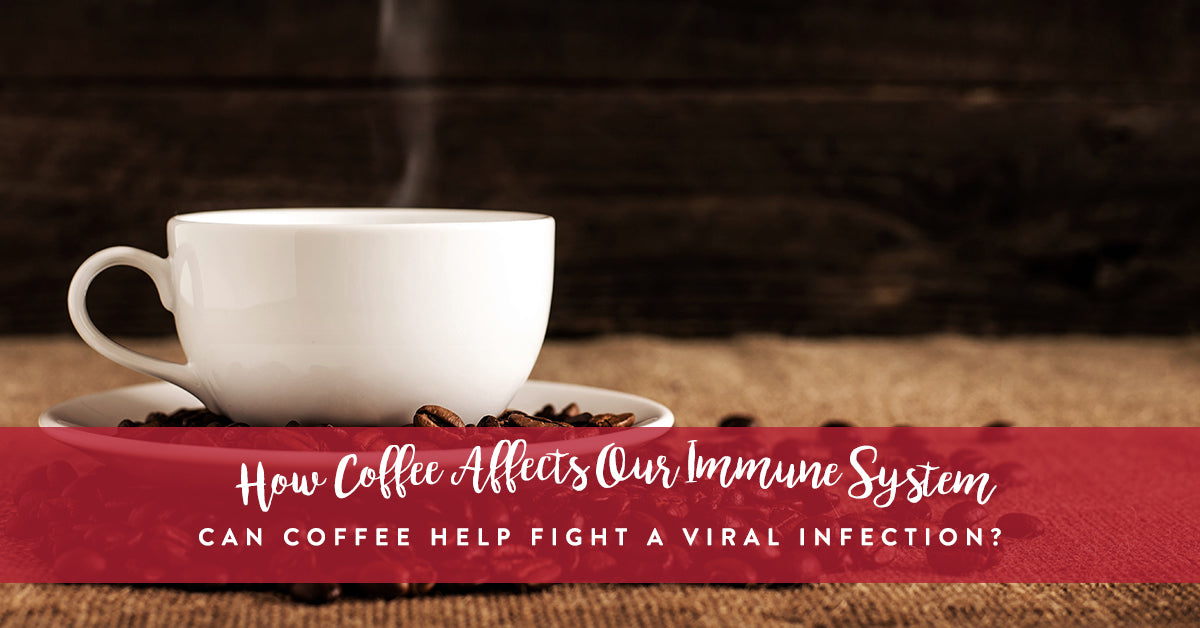
How Coffee Affects Our Immune System
Can Coffee Help Fight a Viral Infection?
As we all come to terms with the threat of coronavirus, we are being advised to look after ourselves and take measures to ensure we strengthen our immune system to fight the virus. We’ve been wondering whether consumption of coffee is likely to help or hinder our immune system, so we’ve taken a brief look at the prevailing scientific wisdom.
Coffee is a complicated mixture of more than a thousand chemicals. What defines that chemical make-up includes the type of coffee bean used, how it is roasted, the amount of grind, and how it is brewed. Human response to coffee, or caffeine, can also vary substantially across individuals. Low to moderate doses of caffeine (50–400 mg, up to 4 cups) can induce increased alertness, energy, and ability to concentrate, while higher doses may have negative effects such as anxiety, insomnia, restlessness, and increased heart rate.
The cumulative research on coffee points in the direction of a health benefit, with numerous research studies highlighting the benefits in: reducing the impact of some cancers; lowering the risk of developing diabetes; moderating the risk of heart attack and stroke; and reducing the likelihood of developing depression.
There are some studies which suggest potential benefits from coffee for the immune system. But the evidence is not as strong as for other health benefits and there is a danger associated with an over-consumption of coffee.
Pros:
Some studies suggest caffeine acts on the immune system. It seemingly acts as an immunomodulator, modulating the innate and acquired immune response with effects that are still difficult to define, but are probably anti-inflammatory.
According to a review published in 2006 in Pharmacology & Therapeutics by the National University of Ireland, caffeine would suppress the production of pro-inflammatory cytokines such as Tnf-alpha, but also that of antibodies, potentially having a positive effect in patients with chronic inflammatory diseases such as arthritis or psoriasis.
These effects occur when caffeine is consumed in moderation. Up to 400 milligrams of caffeine (roughly 3 – 4 cups (250ml) of brewed coffee) is recognised as a safe or moderate amount for most healthy adults. Adolescents should have no more than 100mg of caffeine a day.
It is important to note that caffeine can have varied effects depending on the consumer. Some factors that impact an individual’s response to caffeine include frequency of consumption, age, body mass, mental health and medication use. If you are sensitive to the effects of caffeine, any amount of caffeine may have unpleasant effects.
Cons:
Contrary to the potential benefits highlighted, too much caffeine can decrease the ability of our immune system to fight infections as well as remove damaged or abnormal cells.
Studies also show women and men who drink large amounts of caffeine release higher levels of the stress hormone cortisol in response to physical and mental stress. The cortisol triggers the release of sugar and fat from your body’s stores in order to physically exert yourself in times of stress.
Health concerns associated with this stress response include high blood sugar, elevated cholesterol and triglycerides, and suppression of your immune system. Consuming high doses of caffeine can also induce or worsen panic attacks, anxiety, nervousness, restlessness, insomnia, stomach upset, irritability and addiction.
Summary
In conclusion, our brief review of the scientific evidence suggests coffee and more specifically caffeine, might have a positive impact on our immune systems through an anti-inflammatory effect. However, the scentific evidence for this is not as strong as other health benefits. Over consumption of coffee can have a detrimental effect on our immune’s system to fight infection.
The old adage of “everything in moderation” seems to apply. But, if you have any particular concerns, seek medical advice.


